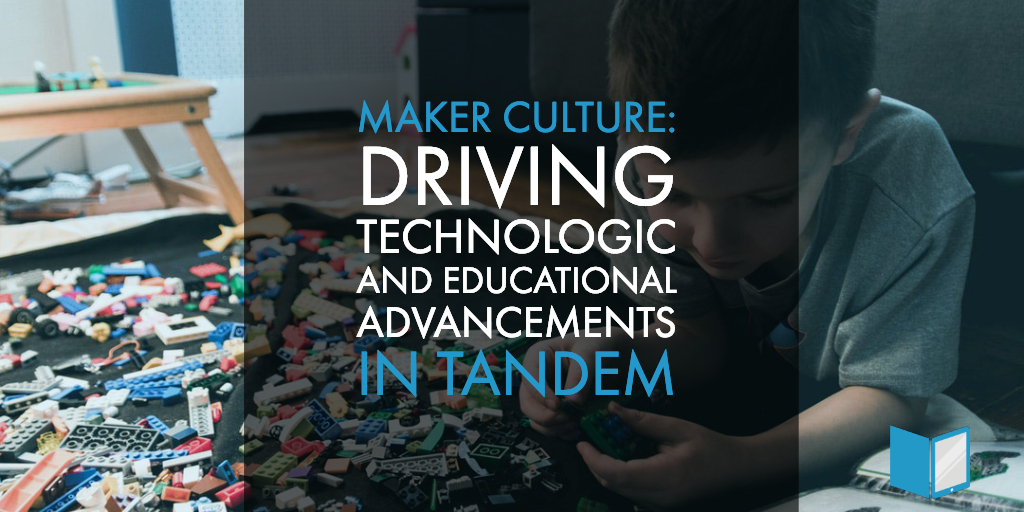It’s no secret that every student, every person, learns in their own unique way. We often hear terms like “auditory learners” or “visual learners” used to describe learning styles, as most people discover they prefer certain teaching methods to others. The latest trend in learning styles is to learn by doing. Many millennials and Gen Xers are finding that their preferred learning method is hands-on, interactive, and oftentimes creative; instead of watching or listening, they learn by making. The emergence of this new maker culture doesn’t just affect student learning styles; it’s becoming a powerful influence on the direction of education and technology as a whole.
What Does It Mean to Be a Maker?
Learning by doing isn't a brand new concept. It was frequently used in the era of apprenticeships, during which craftsmen and artisans trained their apprentices through immersive, on-the-job education. While society has since moved to a formal model of education, the principles behind intense, student-driven, hands-on training are just as effective as they were in the 1800s. In fact, having a self-motivated, entrepreneurial mindset and unique tactical skillset positions job seekers quite well in today's competitive job market.
Maker Culture Necessitates an Educational Shift
Our modern day apprentices demand a different approach to learning. Students today have grown up with technology, and they expect their education to match. 3-hour lectures are no longer sufficient to engage these “doers.” Instead, education must incorporate highly interactive, customized learning options.
Digital learning technology is well-suited to the needs of maker culture. Online and blended learning solutions cater to this mindset by:
- Moving lectures and supplementary learning material to an online format, freeing up class time for hands-on demonstrations and skill development exercises
- Providing the means to easily brainstorm, collaborate and complete projects with peers in a convenient online format
- Presenting students with a wider variety of creative tools that help them feel more connected to and obtain a deeper understanding of proposed topics
Adopting Maker Culture is Good for Business
The maker movement values independent, risk-taking behavior. This spirit of DIY achievement can easily be applied to company culture. Said differently, it helps set students up for success in their future careers. The nuances of maker culture align with the growth and innovation of new technology and business practices in several ways:
- Openness - The open source movement is more than a passing fad. By definition, open source content allows more companies to use and improve on technical developments in a shared environment. While sharing these advancements may allow competing companies to peek at each others competitive advantages, it allows them to continually drive each other to do better. The open source spirit stands for a dedication to ongoing, industry-wide progress, allowing product development to reach new heights.
- A Willingness to Experiment - Innovation is reliant on constantly pushing boundaries. Technological growth is impossible without some measure of risk. Instead of continuing to offer the same tried and true products, the maker mindset encourages the exploration and implementation of new ideas to spur on progress.
- Community Development - By replacing a more competitive mindset with a supportive, collaborative one, team members can more easily work together towards shared goals vs. being pit against each other to see which select few come out on top. You can consider this a form of workplace community.
- Dedication to a Mission - It takes substantial effort and commitment to make constant improvements at a company-level. Because of this, it’s critical that you love what you do. Business owners must genuinely care about solving problems and striving for ongoing innovation, or risk falling behind.
Makerspaces: Promoting a Culture of Inclusion and Innovation
Thinking like a maker helps both students and working professionals succeed in today’s professional environment. Success requires a new skillset of trial and error and cultural agility. Schools and businesses should provide a framework for them to follow that helps prevent common roadblocks. In education, “making” need not be a separate activity, but rather a learning method that can supplement your existing curriculum. For businesses, there's an opportunity to reinvigorate your workforce with new learning opportunities that help them become better employees and colleagues.
As a publisher, higher ed institution or corporate training professional yourself, we encourage and support your ability to be part of this maker culture. We provide an inclusive set of tools that help you craft educational content that not only helps you support the future makers of the world, but also helps you in being a maker yourself. Join the community.



Leave a comment